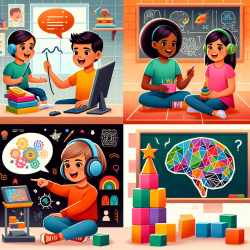In today's fast-paced world, stress is an inevitable part of life. Whether you're a student facing exams, an athlete in competition, or a professional dealing with workplace challenges, the ability to manage stress effectively is crucial. Recent research suggests that emotional intelligence (EI) might be the key to transforming how we respond to acute stress.
The Role of Emotional Intelligence in Stress Management
Emotional intelligence encompasses our ability to perceive, regulate, use, and understand emotions—both our own and those of others. It is divided into two main types: Trait Emotional Intelligence (TEI) and Ability Emotional Intelligence (AEI). TEI refers to self-perceptions of emotional abilities, while AEI involves actual emotional skills measured through performance tests.
The systematic review titled Does Emotional Intelligence Buffer the Effects of Acute Stress? A Systematic Review explores whether EI can act as a "stress buffer." The review analyzed 45 studies and found that TEI may reduce stress reactivity in certain contexts such as sports and cognitive tasks. However, its effectiveness in social evaluative situations was less clear.
Practical Implications for Practitioners
For practitioners looking to enhance their skills or develop training programs, understanding the nuances of EI can be highly beneficial. Here are some key takeaways:
- Context Matters: TEI appears particularly effective in sports-based stressors and cognitive challenges. Consider incorporating EI training in these areas to help individuals manage stress better.
- Recovery Advantage: Both TEI and AEI have been linked to faster recovery from stress. Encourage clients to focus on recovery strategies that leverage their emotional strengths.
- Balanced Approach: High levels of AEI might not always be advantageous. It's essential to balance emotional skills with self-confidence (TEI) for optimal outcomes.
Encouraging Further Research
The review highlights the need for more research into how different types of EI affect stress responses across various contexts. Practitioners are encouraged to explore this area further by conducting their own studies or collaborating with researchers.
The findings also suggest that integrating EI assessments into therapy sessions could provide valuable insights into clients' stress management capabilities. By understanding the interplay between emotional skills and stress responses, practitioners can tailor interventions more effectively.
To read the original research paper, please follow this link: Does Emotional Intelligence Buffer the Effects of Acute Stress? A Systematic Review.










